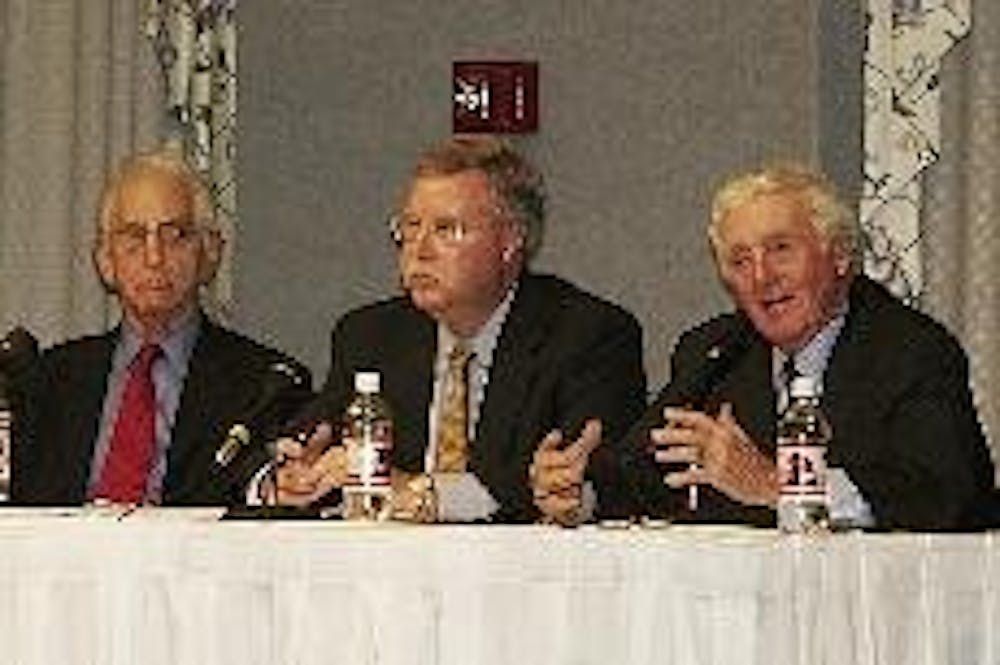
Daniel Ellsberg (left) draws ties between Vietnam and the conflict in Iraq. (Michael Pickering)
The speech of former Pentagon insider Daniel Ellsberg's at Miami University Monday night couldn't have come at a more appropriate time than the day on which North Korea reportedly tested a nuclear weapon.
Ellsberg is a defense analyst who was responsible for leaking the Pentagon Papers, documents that detailed the history of U.S. involvement in Vietnam, to The New York Times in 1971. Recently, he has been calling for government workers to release similar documentation, which he believes is available on the war in Iraq and a possible future war in Iran.
His speech, "Government Secrets and Nuclear War in the Middle East," was held in the Shriver Center and was followed by a panel discussion.
Ellsberg talked of an oath he broke by being a whistle-blower and revealing secret documents to the public.
"It didn't occur to me that I had made another oath that was in conflict with that of secrecy," Ellsberg said. "That was to uphold and support the Constitution."
Ellsberg has appealed to those currently in his similar situation with information on how, he believes, the government has lied to the public about the issues in the Middle East.
Barbara Morgenstern, a faculty member in the journalism program, felt that the timing of the speech would really spark interest among students.
"I invited him to come to Miami, thinking about media law (but) everything has evolved, especially overnight," Morgenstern said.
Ellsberg said in a press conference at 3 p.m. Monday that he feels the Bush administration's policy of not formally talking to governments, like North Korea, has led to tensions such as the occurrences this week.
"One could say we could have avoided this nuclear test, had we negotiated with Korea like China asked us to do," Ellsberg said.
Enjoy what you're reading?
Signup for our newsletter
Ellsberg criticized the media in particular, saying it acts simply as stenographers for the administration. This, according to Ellsberg, is a cause of public ignorance to what he says are governmental lies.
This viewpoint was backed at the panel discussion by long-time journalist and chairman emeritus of The Tennessean, John Seigenthaler.
"I'm pessimistic about (the integrity in journalism today)," Seigenthaler said, referring to whether media sources and journalists today would live up to the standards of when the Pentagon Papers were released. "I don't think the profession has realized the problem yet ... we need to be willing to go to jail along with our sources."
Panelist and media lawyer Richard M. Goehler agreed.
"The press was protected to bear the secrets of the government and inform the people," Goehler said.




